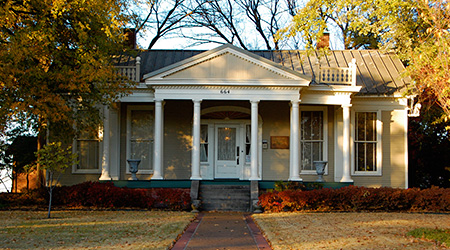Are You Selling Your Home For Too Much?

It can often be difficult to determine if you're selling your home for too much. Even with a market analysis comparing your home to other properties sometimes nailing down a price that allows you to maximize your profit is elusive. Once you've settled on a price for your home there are still a number of factors which will come into play. If you really want to know if you're selling your home for too much that answer should become crystal clear within a few weeks of being on the market. Here is a list of various clues which will help you nail down a price.
Clue #1
Within the first week or two you will develop a clear understanding of whether or not your price is above market based on foot traffic. It is not unheard of for homes priced at or below market to sell within two weeks or less. That's not to say your home will sell that fast but if it has curb appeal and is priced correctly you should be getting some interest from buyers. Realtors should be scheduling appointments and showing up at open houses so if this isn't happening then the asking price may be cost prohibitive.
Clue #2
Are you including the full price of any upgrades or remodeling into your calculations? Many times homeowners will upgrade various features of their property such as remodeling the kitchen or bathroom and then add that cost to the price of the home. In a perfect world you'd be able to recoup what you've invested but if you price your home out of the market then that is unlikely to happen. Sometimes upgrades and remodeling merely get the home on par with others on the market to give it a chance to sale rather than get top dollar.
Clue #3
Is the price you selected for your home specifically meant to include a target profit margin? By this I mean have you picked a number that will make you enough money to put a down payment on a home you have your eye on or some other financial goal. Sometimes individuals will owe $85,000 on their home but want to net $50,000 profit and will price their home at $135,000 when it's really only worth $115,000. It's good to have goals but if your goals are unrealistic then expect your home to sit on the market for a very long time if it sells at all.
Clue #4
If your home is getting interest from prospective buyers but all of the offers are on the low end this should be a red flag. To a certain extent some offers will be low as part of a negotiation tactic but if 100% of offers are significantly below the asking price then that tends to speak volumes. Your house, just like any other product, is only worth what consumers are willing to pay for it so keep this in mind to determine if you're selling your home for too much.
Clue #5
When selling a home that hasn't had any upgrades or remodeling it is possible that there is significant repair work to be done which should be factored into the asking price. A previously owned home obviously won't be in the same shape as one that's brand-new but that doesn't mean it needs to be run down either. Many prospective home buyers will purchase the absolute maximum they can afford with few resources remaining for repair work or replacing items. It is sometimes realistic to drop the price by $5,000 or more if additional work needs to be done once the new homeowners move in.
Clue #6
Sometimes homeowners will list their house on the market to see if they get any bites from prospective home buyers. In reality, they aren't particularly interested in selling their home; at least not for the right reasons. Relocation for employment or downsizing because the kids are grown are great reasons to sell a home. However, testing the market to see if you get any takers may mean your house is priced above market and if it sells it sells and if it doesn't it doesn't. Often homeowners will also have sentimental attachment which skews their judgment when pricing it for sale. In these scenarios the home is unlikely to sell because the homeowner doesn't truly want to move.
When you ask yourself if you're selling your home for too much in reality you should already know the answer. Properly pricing a home for sale includes an objective market analysis against comparable properties which is then verified by a real estate agent. An independent appraisal paid for by the home seller will also confirm whether or not the price selected reflects reality. If you're asking yourself about the price of your home then you need to do more research and speak to experts. They will be able to objectively provide feedback and give appropriate guidance.
Elsewhere on StockMonkeys.com







